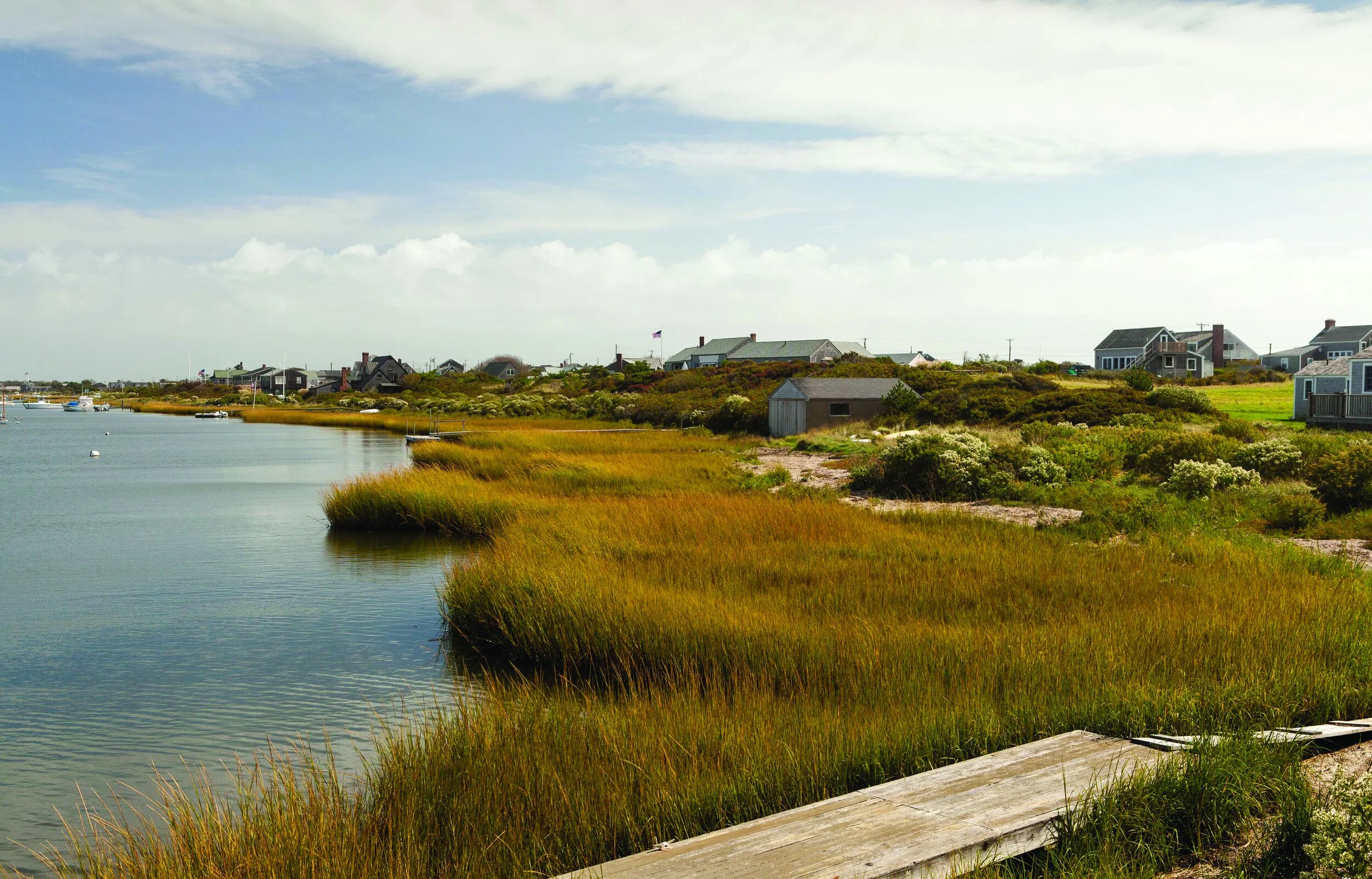Great Marsh Symposium 2022: The future of roads through the marsh
A sense of urgency was the underlying theme of this year’s Great Marsh Symposium, an annual event that has brought together non-profits, local North Shore students, and natural resource professionals for more than two decades, to spread awareness about the challenges faced by New England’s largest salt marsh.
This year’s event included several presentations from Great Marsh Coalition (GMC) members on coastal infrastructure adaptation, designing for resilience, and stewarding as an NGO. Perspectives from residents living in and around the Great Marsh, as well as from local high school students rounded out the program, and audience discussions were facilitated.
“The symposium is a chance for our GMC member organizations to share their work and progress in protecting this incredible landscape,” noted Carole McCauley, GMC member and Trustees Engagement Manager. “A highlight each year is hearing from the next generation—local high school students—and this year was no exception, thanks to 20 students from the Climate Café program who shared with us their career aspirations and engaged us in conversation about what kinds of jobs will be needed in the future to address climate change along the coast.”
This year’s program featured the following sessions:
Overview of roads through the Great Marsh
Wayne Castonguay – Executive Director, Ipswich River Watershed Association
Kathryn Glenn – North Shore Regional Coordinator, Massachusetts Office of Coastal Zone Management
The planner & engineer perspective
Peter Phippen, Selectman, Town of Essex
Frank Ventimiglia, Operations Manager, Town of Ipswich
The NGO perspective
Kate Bowditch, President, Greenbelt
Cynthia Dittbrenner, Program Director for Coast & Natural Resources, The Trustees
David Moon, Community Science and Coastal Resilience Manager, Mass Audubon
Neil Shea, Restoration Program Director, Ipswich River Watershed Association
Facilitated by Annie Harris, Executive Director, Essex National Heritage Commission
The resident perspective (Click here for the recording)
Voices from people who live, work, and/or play down low lying roads around the Great Marsh
The youth perspective
North Shore high school students representing the student group, Climate Café
“One of the many eye-opening moments of the presentations included a flooding map from the Massachusetts Office of Coastal Zone Management,” added McCauley. “According to the map, 1% of the roads going through the Great Marsh today have sunny day flooding—but by 2100 that number is expected to grow to nearly 80%.”
One of the projects underway to address coastal road flooding discussed during the Symposium is the Argilla Road project in Ipswich, a collaboration between The Trustees and the Town of Ipswich. Along with raising the level of the pavement, the team is planning for nature-based designs to protect the side slopes of the elevated road from erosion, and also to replace a culvert under Argilla Road with a larger design that will allow for greater exchange of tidal water in the salt marsh. Currently funded through Coastal Resilience Grants from CZM, the project is an opportunity to pilot an innovative approach that will provide a roadmap for building resilience in similar coastal roads across the state.
Other resilience and adaptation solutions discussed included: “living laboratories” trialing nature-based solutions at Eastern Point in Gloucester, Rough Meadows in Rowley, and Joppa Flats in Newburyport; targeted land conservation efforts; and retreat.
At the end of the 2022 symposium, the first in-person symposium to be held since 2018, three questions were posed to attendees following the speaking program: (1) What criteria should be used in determining what we invest in to help restore and protect the marsh (2) How can we engage new audiences in this work, and (3) Where do we go from here?
Common threads that emerged throughout the discussions included the complex nature of the issues at hand—including uncertainty about who will pay for adaptation and/or relocation strategies, the need for collaboration in order to effectively respond across borders and barriers, and the need for more involvement from organizations and residents, alike. The informal survey of area residents and coastal resource users suggests that not everyone is on the same page about the severity of the threats, whether or not we should consider retreating when flooding becomes more prevalent, and who should pay.
“One of the powerful things about this Symposium is having many perspectives at the table, colleagues who are working towards a common goal from different angles,” noted McCauley. “This year was no exception, and our Coalition came out of the event with ideas for how we might educate and engage the public and stakeholder groups in a targeted way – for instance strategies tailored to realtors, teachers, youth, coastal landowners, community members who are not coastal landowners, the media, and others. As always we invite anyone who wants to get involved in this work to reach out! Collaboration will be key to addressing the challenges that face us today and in years to come.”
##
The Trustees is proud to be a member of the Great Marsh Coalition, joining: Climate Cafes, Eight Towns & the Great Marsh, Essex Heritage, Greenbelt, Ipswich River Watershed Association, Mass Audubon, MassBays National Estuary Partnership, Massachusetts Office of Coastal Zone Management, Merrimack Valley Planning Council, NOAA Restoration Center, Parker River Clean Water Association, Parker River National Wildlife Refuge (USFWS), and Plum Island Ecosystem – Long Term Ecological Research Project. To get in touch with the coalition visit greatmarshcoalition.org or email greatmarshcoalition@gmail.com

















